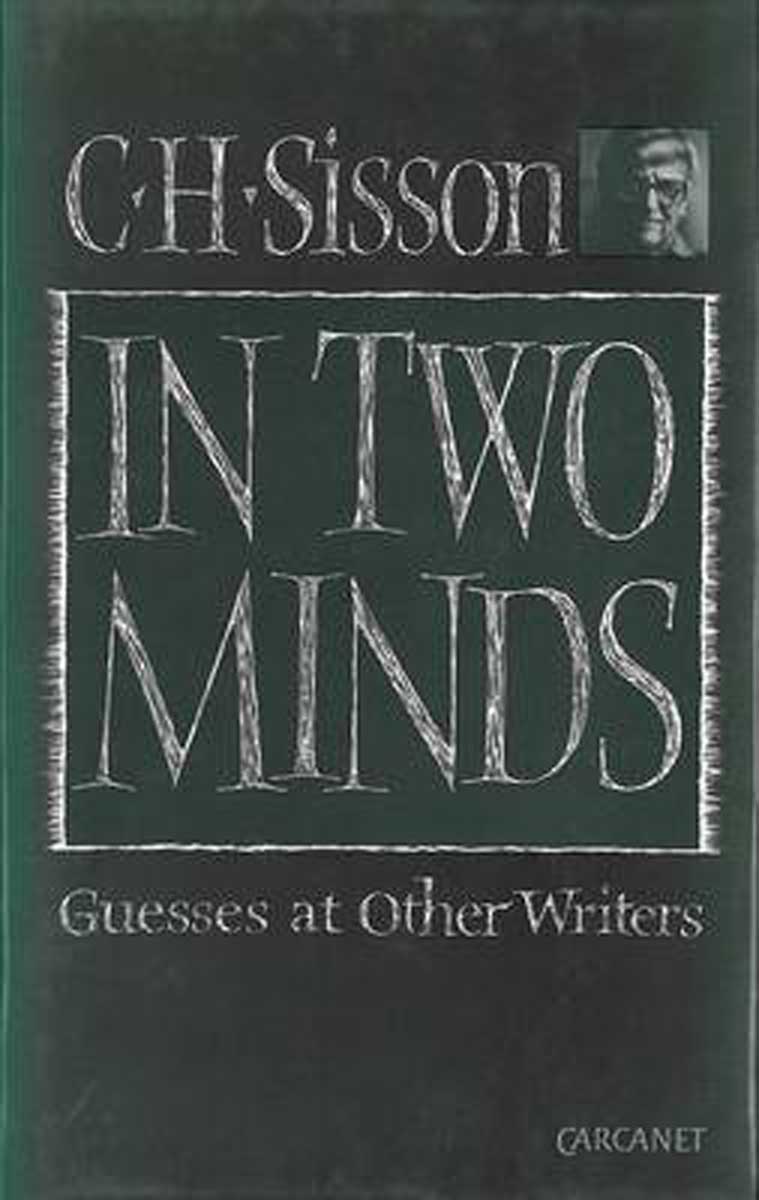HB:
£18.95
QTY:
Categories:
In Two Minds
Literary Essays
"In Two Minds" advances a single argument: that reading and writing are collaborative ventures with past and future. Tradition is a living resource.
Sisson considers literary vocation, the act of reading, the practice of real criticism and the comedy of some kinds of academic criticism. He writes about authors he has translated – Horace, Dante and Virgil among them – reflecting on their development and what their work means today. His major essays on the English writers of the seventeenth and eighteenth centuries, including Marvell and Swift who are especially near to his heart, pursue the theme; and so, crucially, do his accounts of the modern classics such as Hardy, Pound and Ford Madox Ford.
Sisson's essays often begin, as Dr Johnson's did, with an evocation of the writer's life, especially the formative years, and move on to assess the work with the eye of one who is himself "one of the greatest translators of our time" (Jasper Griffin, The Times Literary Supplement), a novelist, and a major poet.
Sisson considers literary vocation, the act of reading, the practice of real criticism and the comedy of some kinds of academic criticism. He writes about authors he has translated – Horace, Dante and Virgil among them – reflecting on their development and what their work means today. His major essays on the English writers of the seventeenth and eighteenth centuries, including Marvell and Swift who are especially near to his heart, pursue the theme; and so, crucially, do his accounts of the modern classics such as Hardy, Pound and Ford Madox Ford.
Sisson's essays often begin, as Dr Johnson's did, with an evocation of the writer's life, especially the formative years, and move on to assess the work with the eye of one who is himself "one of the greatest translators of our time" (Jasper Griffin, The Times Literary Supplement), a novelist, and a major poet.
About the author
Born in Bristol in 1914, C. H. Sisson was noted as a poet, novelist, essayist and an important translator. He was a great friend of the critic and writer Donald Davie, with whom he corresponded regularly. Sisson was a student at the University of Bristol where he read English and Philosophy. As a poet he first came to light through the "London Arts Review" founded by the painter Patrick Swift and the poet David Wright. He reacted against the prevailing intellectual climate of the 1930s, particularly the Auden Group, preferring to go back to the anti-romantic T. E. Hulme, and to the Anglican tradition. The modernism of his poetry follows a "distinct genealogy" from Hulme to Eliot, Pound, Ford Madox Ford and Wyndham Lewis. His novel "Christopher Homm" experiments with form and is told backwards. Sisson served in the British Army during World War II in India and joined the Ministry of Labour in 1936. He worked as a civil servant and wrote a standard text "The Spirit of British Administration" (1959) arising from his work and a comparison with other European methods. Sisson was a "severe critic of the Civil Service and some of his essays caused controversy". In his collection "The London Zoo" he writes this epitaph "Here lies a civil servant. He was civil / To everyone, and servant to the devil". C. H. Sisson was made a Companion of Honour for services to literature in 1993. Carcanet publish his Collected Poems, his novels, essays, and his autobiography On the Lookout, as well as his versions of Dante, Virgil, La Fontaine, Du Bellay, Lucretius and others.


